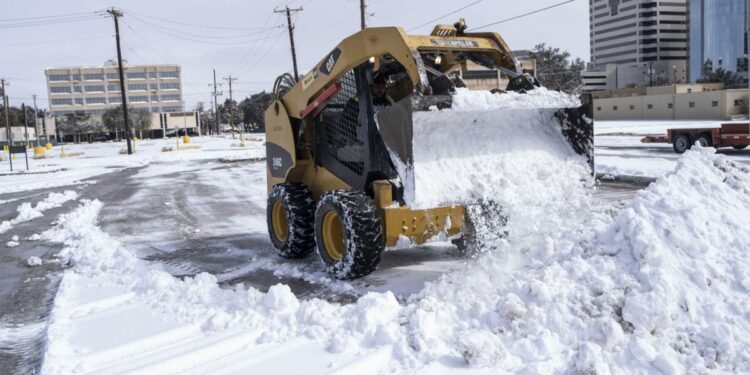“The ERCOT grid is stronger and more reliable than ever. We are going into the winter knowing that the lights will stay on.”
Those were the words of Peter Lake, Chairman of the Texas Public Utilities Commission (PUC), during a press conference held in Austin Wednesday. Mr. Lake was appointed to lead the PUC in April, as Governor Greg Abbott worked to reconstitute the Commission in the wake of Winter Storm Uri and the massive, deadly blackouts that led to the resignation or removal of the PUC’s three previous members.
Like every member of every Texas state commission and every statewide elected officeholder in the state, Lake is a Republican, the party that has held all of those offices continuously since the 1996 elections. Over the intervening 25 years, the Texas power grid has been completely transformed by a series of Republican governors, lieutenant governors, PUC members and GOP majorities in both houses of the Texas legislature.
During that quarter century, the Texas grid has shifted from a regulated grid to a free market system; from a grid dominated by coal-fired power plants to one dominated by combined cycle natural gas plants; from a grid including virtually no renewable energy to a diverse, integrated system with more than 30% renewable capacity. All of those changes and more have taken place under 100% Republican stewardship. So it’s only appropriate that Lake, Brad Jones, CEO of the Electric Reliability Council of Texas (ERCOT) and Gov. Abbott are now assuming full public ownership of the commitment to keep Texans’ lights on this winter.
Lake and his fellow PUC commissioners acted in October to become the first to implement requirements for power generators to weatherize their facilities in the state, a move the PUC under former Governor Rick Perry failed to take in the wake of a similar winter storm that caused major blackouts in February, 2011. Lake and Jones detailed ERCOT’s efforts already underway to inspect those plants to ensure readiness over the course of December during Wednesday’s press event.
The PUC separately announced on Wednesday that it will propose fines totaling $7.5 million against 8 generators for failing to file their required readiness reports by the December 1 deadline. Those generators include Cooke Solar, Bull Creek Wind, Cotton Plains Wind, Lamesa Solar, Midway Solar, OCI Alamo, Shell Oil Company and Texas Big Spring LP.
The Texas Railroad Commission, which regulates natural gas producers and pipelines in the state, has a longer timeline for developing new weatherization requirements of its own, with target date of September, 2022. But Todd Staples, President of the Texas Oil & Gas Association, emphasized that operators of critical gas infrastructure have not been idly waiting for the RRC to produce regulations. “I feel very confident that operators … and our partners on the electric generation units and local distribution companies are all working together in a much more collaborative fashion,” Staples said. “All designed to improve and protect the lives of Texans.”
Staples noted that production companies and pipeline operators whose gas supply is integral to the power grid have been focused on ensuring their facilities are properly designated as critical infrastructure. This is a step many companies had failed to take by filling out a simple annual form prior to last February, largely because it was optional and not required by regulation. That’s a poor excuse, one that was recently corrected by the RRC. “Keeping the power on is the best winterization tool we have,” Staples said.
There is no question that significant improvements to the Texas grid have taken place since February’s tragic event, including the addition of a significant amount of additional generating capacity. Although that new capacity is almost all intermittent renewable additions, it should serve to provide grid managers at ERCOT some level of added optionality in efforts to avoid supply disruptions.
There is also no question that significant issues remain to be addressed by state regulators and policymakers. Lake himself talked about the need to address the grid’s ongoing shortage of dispatchable reserve thermal generating capacity and other “generational issues” still impacting the grid during the PUC’s regular meeting in November.
But the improvements already implemented have obviously created a higher degree of confidence among GOP regulators and policymakers. Yesterday’s strong expressions of confidence from the leaders at the PUC and ERCOT echo recent statements by Gov. Abbott that he is willing to “guarantee” the grid will not fail during the course of this winter.
That’s a pretty bold political risk that no elected official or regulatory appointee would want to assume without strong underlying justification. The fact that these officials are willing to assume that risk should make Texans feel somewhat better about their energy security situation as winter looms.











